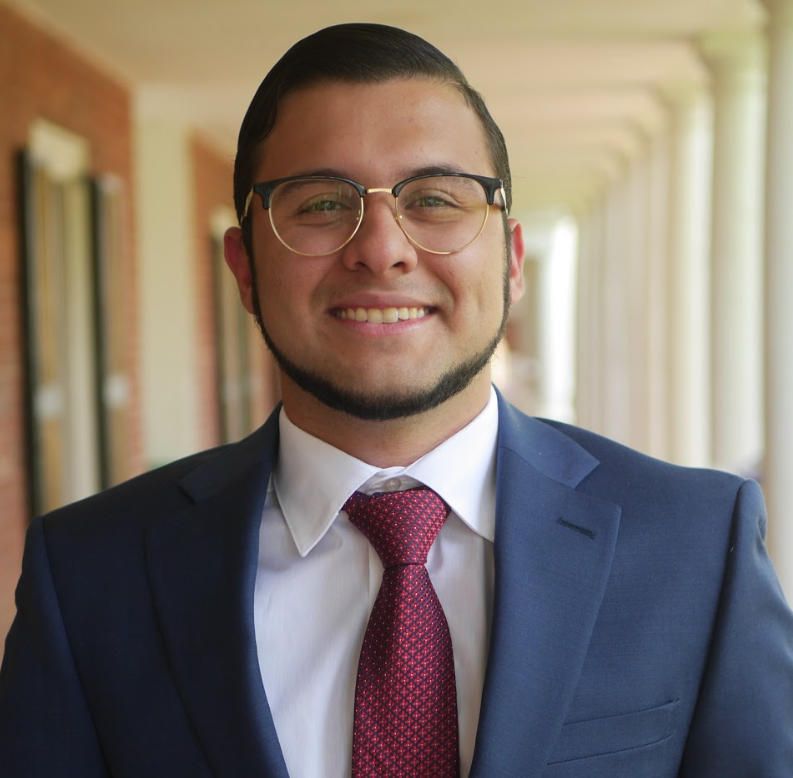From the Application Process to My First Semester as a Ph.D. Epidemiology Student: My Advice to Future Applicants
Category : PROspective
By: Jorge Gonzalez Mejia
As our world and country transition, heal and continue to battle the challenges and hardships of the pandemic, a new group of determined and resilient candidates are applying to Ph.D. programs in epidemiology. From social risk factors to infectious diseases, students are interested in having the opportunity to drive innovative research in epidemiology, develop new methods, and address structural injustices that have impacted their communities. While many applicants are at different stages of the application process (i.e., thinking about potential programs, drafting personal statements, seeking reference letters, or preparing for interviews), many want to get more insight into the application process and what it is like to be a first-year Ph.D. student. In light of this, I would like to share some advice and experiences from the application process to my first year.
Applying to Ph.D. Programs.
Applying to Ph.D. programs during a pandemic can be overwhelming and bring some anxiety. More people are applying to programs than in previous years, programs are getting more selective, and the pool of applicants is getting more competitive. On the other hand, applicants are experiencing more financial, physical, and mental health barriers than in previous cycles. For those going through the application process or thinking about applying, my advice is to plan ahead, create a personal timeline, and keep constant communication with the programs you are interested in. Creating a personal timeline will not only reduce stress but also keep you accountable for meeting personal deadliness –a key skill you will need as a Ph.D. student! Furthermore, it will give you flexibility for situations that might come up last minute. Lastly, constant communication with programs will allow you to learn more about their values, strengths, and community. If you think you are taking someone’s time, you are not! Faculty, students, and program administrators look forward to sharing their work with prospective applicants, learning more about their interests, and sharing information about their programs. At least I can guarantee that you will find this to be true at Emory!
You Were Accepted—Now What?
Whether you received multiple offers or got the one offer you wanted, congratulations! Your hard work has paid off! Now what? While you need to rest and celebrate the magnificent news with your friends and family, there are some proactive steps you can take before your first day as a Ph.D. student. For those who have to make a decision, this time is paramount to getting to know programs better. Arrange virtual meetings, ask questions, contact potential advisors, compare offers, identify the strengths and weaknesses of the program, and, if allowed, arrange an in-person visit. In the end, you want to make a well-informed decision and ensure that the program is the right fit for you. For those who committed to a program, in addition to some of the steps mentioned above, I would suggest getting to know your cohort and current students. This is a great time to get to know people with similar interests and share ideas on how to prepare and make the most out of the program.
What Should You Expect from Your First Year?
While the answer to this question will vary among programs, I would provide some insights into what to expect from your first year at Emory. First, your first two years will be a combination of courses, teaching assistantships, and research assistantships –and your schedule will vary according to your previous degrees and courses taken. If you are interested in learning more about the specifics, I encourage visiting Emory’s Ph.D. Epidemiology requirements or program administrators to learn more about the requirements. Second, at Emory, you will find guidance and structure. Starting a Ph.D. program can feel like a Walmart experience, where there are tons of projects that you can get involved with, but you might not know where to start. While it is great to get involved in projects early on, it is okay to use your first semester to communicate your goals to your advisor, take your time in learning more about faculty’s research, and narrow down your interests. The good news is that all Ph.D. students at Rollins are required to take PUBH 701, a fantastic course that will allow you to think critically about your research agenda, time management skills, planning, career decisions, and individual development plan. Lastly, at Emory, you will find support, respect, and value for students and colleagues. You will find a diverse and welcoming community with a collaborative student body and faculty willing to listen to your needs, learn about your interests, and provide you with the tools you will need to accomplish your goals. At Emory, you will find people who care for you and who want to see you succeed.
While this short piece covers multiple topics that could be extended, I hope I briefly shared some of my experiences from the application process to my first year as a Ph.D. Epidemiology student at Emory. Please feel free to reach out to me if you have any questions! I would be happy to meet with you or connect you with someone who can help you.

Jorge is a PhD student in the Department of Epidemiology at Rollins School of Public Health. His research interests lie at the intersection of Latinx health, immigrant health, type 2 diabetes, and cardio-metabolic outcomes across the lifespan. Specifically, he is interested in the intergenerational psychosocial risk factors of immigrant populations and the role of potential mediators in reducing the risk of diabetes-related outcomes.
Featured Image by Vlad Kutepov on Unsplash
